Top 5 PagerDuty Alternatives: A Comprehensive Comparison
Since its establishment, PagerDuty has been the most sought-after solution as it has many robust capabilities, helpful for any company in keeping operations undamaged and ready to respond to such incidents.
Being the most popular Incident Management platform, it helps the team respond to warnings and emergencies quickly and efficiently. But, the pricing factor may act as a bummer.
It can be pretty complex and expensive for scaling businesses or for Incident Response teams.
Luckily, there are alternatives or competitors to PagerDuty over the Internet. With numerous options, one may likely feel overwhelmed.
To make things easier for you, we will discuss five PagerDuty alternatives, in this blog. Specifically, by offering a list of features and a comparison between them all, with a special emphasis on Zenduty which can serve as a great option for companies who prefer flexible risk-handling systems.
Do not forget, your decision should be based on factors like integration and user interface.
Zenduty
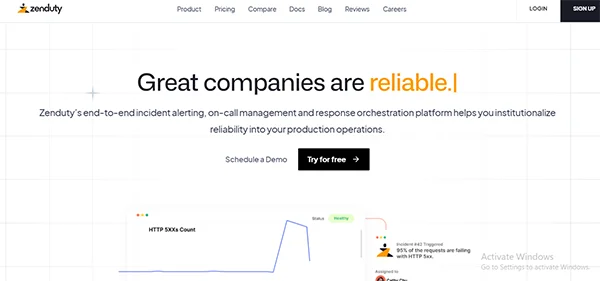
Zenduty is the platform built for performance, that is, to handle unexpected incidents and maintain operational stability as problems or errors affect the means of production. Wicked suggests capabilities such as smart alerting tools, collaborated instruments, integrations, and customizable workflow.
Do You Know?:
For the 2024 fiscal fourth quarter, PagerDuty expects revenues in the range of $109.5-$111.5 million.
It offers a complete solution for setting up and monitoring the incident proficiently. It is therefore suited to companies of any size, supplying both simple and complex pricing options.
Key Features of Zenduty:
Intelligent Alerting
This platform connects to and collects alerts from various sources of alerts using customizable escalation criteria such as severity or time of the day, to ensure timely response and action to resolve the issue.
Collaboration Tools
Its platform enhances team workflows providing functions such as timelines of incident, integration with chats, and unexpected event retrospectives.
Integrations
Besides, it links to various platforms for tracking, logging, and integrating tools. This integration leads to centralized management and automated workflow.
Customization
Organizations can fine-tune their emergency management workflows and notification preferences accordingly. This has the potential to enable them to adopt processes that best correspond to their organizational structure and operational processes.
Reporting and Analytics
Its reporting and analytics dashboards are a good demonstration of the software. They give organizations the ability to track key performance indicators and, over time, continuously improve response processes.
VictorOps
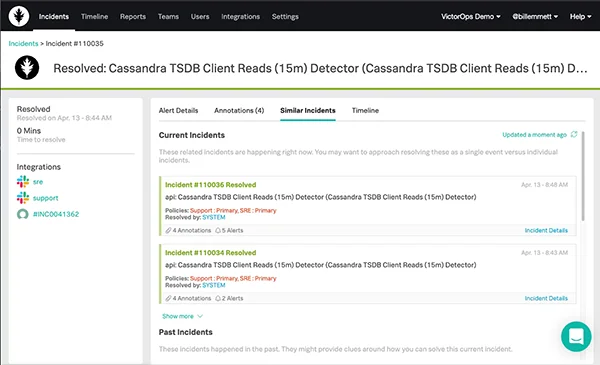
VictorOps is an incident-management tool, which gives real-time view, alert notifications, and collaboration tools to the experts from DevOps. With functions like the mishap timeline feature, crisis call scheduler, and chat integration.
It creates a place where the team collaborates in an integrated manner enabling them to resolve incident fast.
Key Features of VictorOps
Real-Time Monitoring
This platform is dedicated to providing notification processes which means that the teams can use real-time monitoring of the system status and applications as well as respond promptly to the event that arise.
On-Call Scheduling
It addresses both these challenges by providing the team with a tool that enables an easy schedule-creating and in-call rotation task, thereby making sure that 24/7 support continues to be provided.
Chat Integrations
When VictorOps gives immediate access to tools such as Slack and Microsoft Teams that are widely used during a disaster response, the program solves the problem of varying communication and collaboration approaches.
Incident Timelines
Happenings are tracked on timelines provided by it, which serves as a repository for all the event evolutions, from initial alert to settlement of the issue, that not only benefit the after-effects analysis but also create a template for the follow-up.
OpsGenie
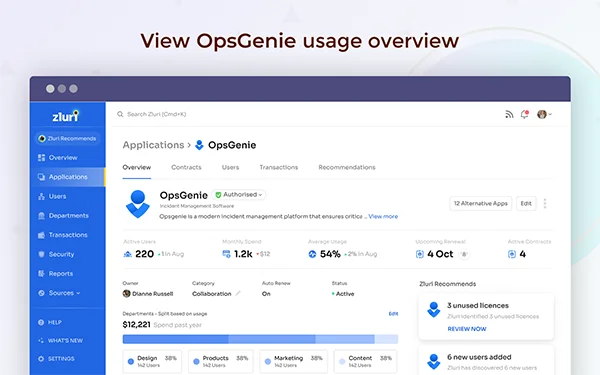
OpsGenie is a platform for incident management that allows one to send notifications, schedule shifts, and keep track of incident between IT and DevOps. Equipped with tools like configurable alarms, routing, and the integration of other systems,
IT teams can respond promptly to such cases, thereby reducing downtime.
Key Features of OpsGenie
Customizable Alerting Rules
OpsGenie’s customizable alerts can be generated in a way that tends to correspond to the importance, severity, and other factors and will always notify the right person without wasting time.
On-Call Scheduling
Its users are enabled to set schedules for 24-hour shifts with flexible timekeeping options in addition to rotating shifts to avoid excessive fatigue.
Escalations
OpsGenie is the way to define escalation processes for irregularities. Thus, the urgent queries will be escalated to the right people in case they don’t get solved within a predetermined time frame.
Integrations
Concerning integrations, it is capable of integrating with many monitoring as well as log exchange tools, so that it may be ensured that the whole communication is a seamless one and workflow automation is achieved too.
Incident Tracking
With OpsGenie disaster management capabilities, teams can have matters tracked in real time, see and record issue resolution times, and identify trends among indicators.
PagerTree
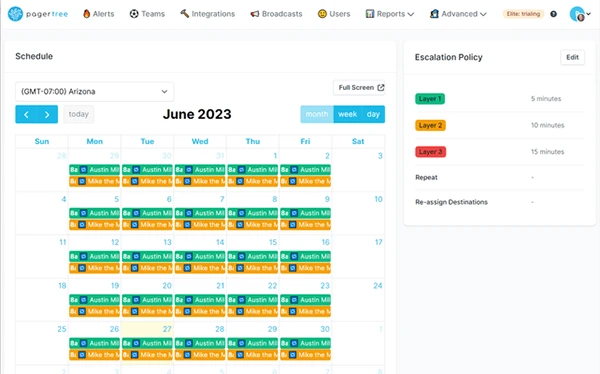
The makeshift PagerTree is a pager that allows 24/7 in-call responsibilities scheduling, alerting, and escalation management of team IT and DevOps.
PagerTree does have capabilities such as customizable rotations, multi-channel reporting, and integrations that enable teams to respond if actions are needed quickly and coherently.
Key Features of PagerTree
On-Call Scheduling
PagerTree provides flawless management options in which teams schedule rotations that meet their specific needs and manage shifts without a hitch.
Multi-Channel Alerting
PagerTree provides its capabilities to alert through multiple channels and this eliminates the issue of alerts being sent to the wrong cohort of people. It leverages the channels like email, SMS, phone calls, and push notifications.
Escalation Management
PagerTree allows a crew to define an escalation policy for alerts so that the team only passes those of high criticality at the set time limits.
Integrations
PagerTree incorporates a whole set of monitoring, logging, and collaboration gear through which it is possible to coordinate the workflow of the employees seamlessly and without a hitch.
Squadcast
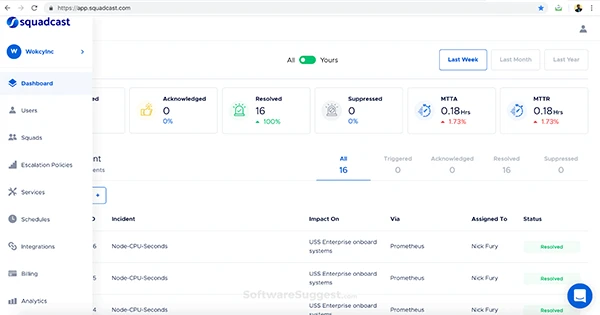
Squadcast is the on-call alerting, time-management, and collaboration platform for IT and DevOps. It provides networked communications platforms to connect and conduct meetings.
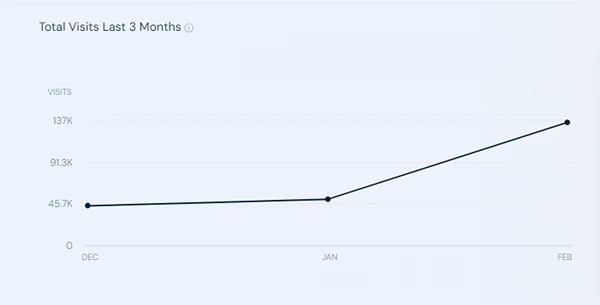
Statistics:
As of Feb 2024, squadcast.com’s traffic has increased by 166.9% compared to last month.
Highlighting streams like timelines, communication with stakeholders, and integrations, the unique concept of Squadcast assists teams in incident response successfully.
Key Features of Squadcast
Intelligent Alerting
It is an integral part of the platform with prioritization of alerts based on the severity, impact, and degree of urgency. As a result, only the most vital alerts are seen by the response team and addressed as quickly as possible.
On-Call Scheduling
Squadcast is about a squad helping teams organize their hours to give the on-call work and support in rotation promptly bringing 24/7 coverage.
Stakeholder Communication
Squadcast offers a communication approach to liaise with stakeholders regarding its metrics and time spent on resolving the issue, which aims to help develop transparency and personal trust.
Integrations
The Squadcast interacts with an array of monitoring, logging, and collaborative tools that make work easier through their straightforward usability and automation capabilities.
Incident Timelines: Squadcast provides awareness timelines that show the full cycle of incident from initially reported to the minimum point, thereby enabling learning and analysis of the fixation occurrences.
Picking A PagerDuty Alternative That Would Fit Your Company The Best
When evaluating PagerDuty alternatives like Zenduty, VictorOps, and others it’s necessary to consider factors such as:
- Traits and capabilities.
- User-friendliness and rapid pace of implementation.
- Scalability and performance.
- The tool to work with other tools and systems.
- Cost-effectiveness and pricing model.
- Support and customer service.
Lastly, the choice of the most appropriate PagerDuty alternative for your company might depend on the use of your company, the notable targets, and the available budget for such an implementation.
Making a choice becomes a more relatable task through technical appraisal of the alternative solutions and their ability to fit in with the requirements.
Therefore, the carefully made choice is the one that is going to support the multiple aims of crisis management and in turn, ultimately drive the success of the business.
